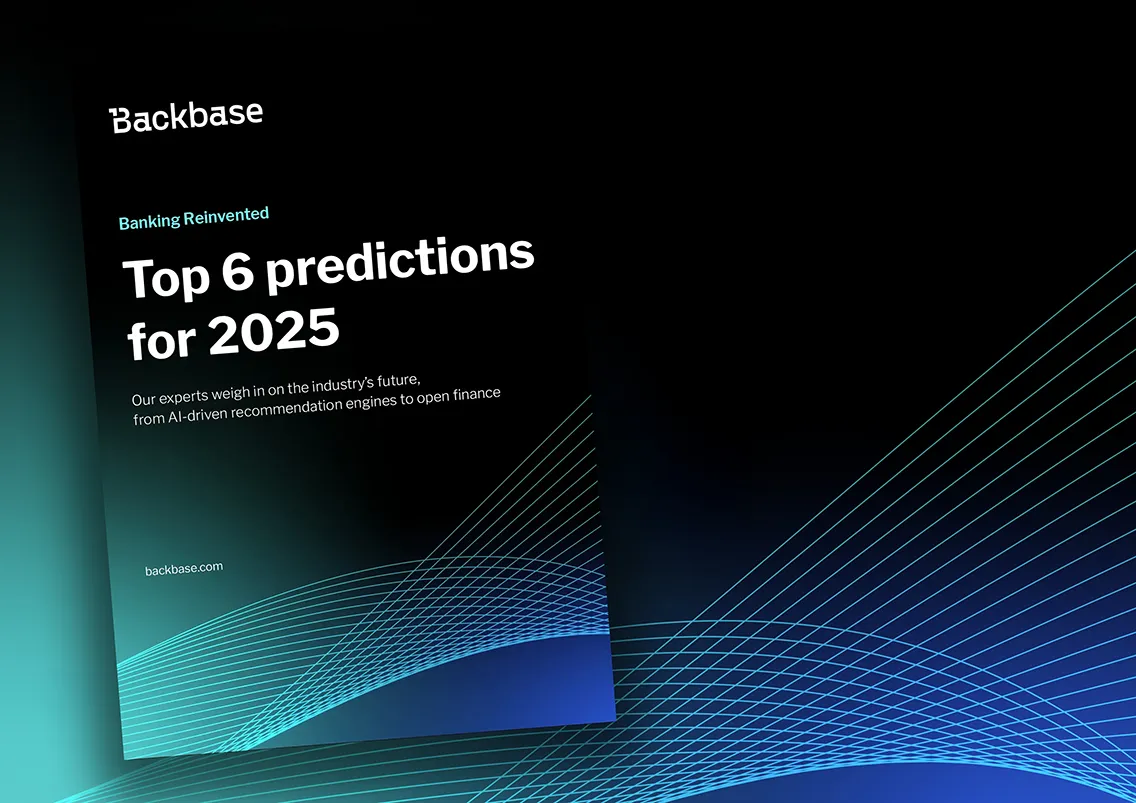This article was produced with the support of Backbase
As the world struggles to make sense of the whirlwind of directives on global trade and its impact on the financial environment coming from the new US administration, Backbase’s new report: Banking reinvented: Top 6 Predictions for 2025 comes as a timely guide for banking planners.
Among its predictions is the increasing role that AI will play in banking going forward. “Agentic AI is a game-changer for modern banking. It empowers us to offer hyper-personalized experiences, optimize complex workflows, and proactively manage risks — all while reducing costs,” said Chris Shayan, Head of AI at Backbase.
AI-powered customer-service assistants — especially AI agents — will become increasingly popular as banks seek to realize productivity gains. Backbase provides banking infrastructure software worldwide, and works with a wide range of financial institutions, from large banks to credit unions and community banks.
AI adoption: start now, start small
The company which provides banking infrastructure software worldwide, and works with a wide range of financial institutions, from large banks to credit unions and community banks, cautions that banks that don’t integrate AI into their technology stacks will end up being less competitive amid widespread industry adoption.
“But as more and more financial institutions jump on the AI bandwagon, banks will find it increasingly difficult to use this tech as a differentiator, so the time to get started is now, even if you’re only starting small,” the report says.
That said, are African banks investing sufficiently in AI? The short answer is no – not yet at least. Many are open to AI and paying close attention to the technology, but there’s still a “wait and see” approach as far as deploying capital towards AI is concerned.
This is partly because of the high cost of implementation. In order to properly utilize AI, banks will need to develop robust data strategies, establish effective governance to mitigate misuse, and ensure information and recommendations are correct. This is a costly undertaking and many banks are hesitant to put money down until they have a clearer idea of the potential returns from AI.
AI adoption is also being slowed down by regulatory uncertainty. While the benefits of AI have captured everyone’s attention, its risks are still not fully understood. Regulators and policymakers – not just in Africa but globally – are still indecisive and this is moderating the pace of adoption.
Fintechs will continue dominating
Backbase also predicts that in 2025 fintechs globally will continue disrupting the traditional banking model, setting new standards for digital experiences and operational efficiency.
“Neobanks, fintechs, and other tech titans will continue to gain momentum throughout 2025…That means traditional banks need to get used to an increasingly competitive market,” the report says.
This prediction is likely to pan out in Africa, where fintech has grown at a blistering pace in recent years and is expected to sustain the momentum. McKinsey projects that fintech industry revenues could soar to $47bn by 2028, a five-fold increase from $10bn in 2023.
Backbase highlights a significant shift in the fintech landscape, noting that while consumer-facing fintechs initially appealed to younger demographics, they are now gaining traction among older generations as well.
“Their (fintechs) target demographic was once young, tech-savvy users, but even older generations have begun seeing the value of their easy-to-use, customer-centric banking services,” it says.
Other major trends that Backbase is watching in 2025 include: the global expansion of open finance; the arrival of industry integration platform-as-a-service (IPaaS); and the expanded differentiation of service levels.
Backbase asserts that to adapt to these shifts and remain competitive, banks must progressively modernise their technology and embrace AI.
Get your copy of the full report here

 Sign in with Google
Sign in with Google 



